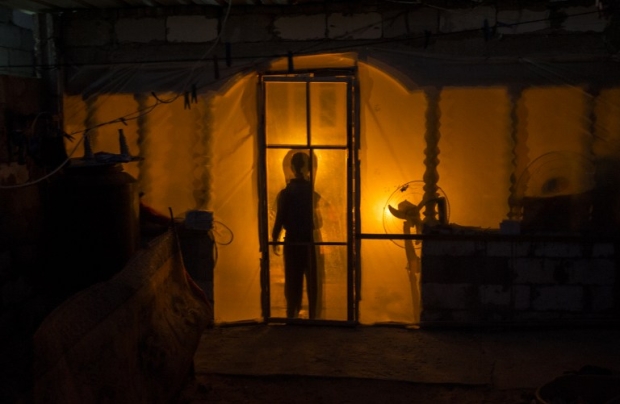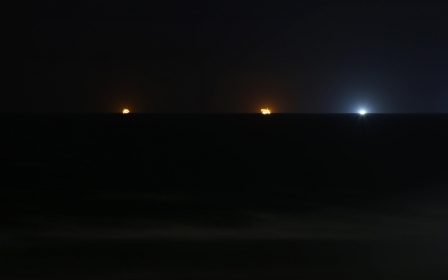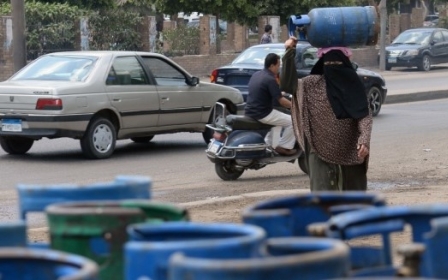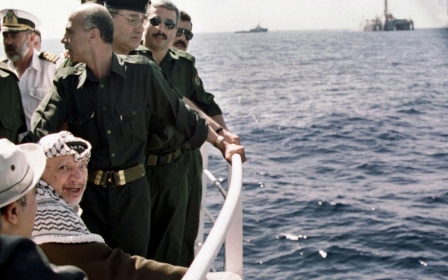Pillaging Palestine's gas? EU in danger of complicity in resource grab
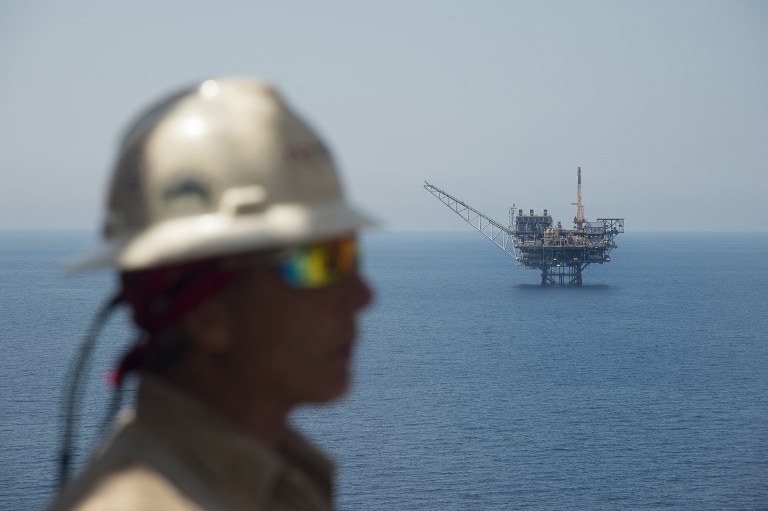
An American energy firm, contracted by the Israeli government to develop Israel's offshore gas reserves, has been accused of potentially "pillaging" from gas reserves inside the Palestinian territories.
The revelations emerge just one month after Israeli and European Union officials agreed plans to develop a huge 2,200 kilometre undersea gas pipeline. The "EastMed" pipeline would transport Israeli gas to Greece and Italy, where it could then be transported to Europe.
The plans, one of 195 energy infrastructure "projects of common interest" being assessed by the European Commission, could see the pipeline carrying Israeli gas to Europe by 2025.
Gas extraction from such a contiguous field requires a cooperation agreement with the Palestinian Authority
Some of this gas could include resources stolen from Palestinian waters. That is the suggestion of a new report published in May by SOMO, a Dutch human rights organisation which is funded by the European Commission and Dutch Ministry of Foreign Affairs.
Illegal extraction?
The report finds that Noble Energy, an oil and gas company based in Houston, Texas, has been potentially extracting gas illegally from Israel's Noa field, which is contiguous with the Palestinian's Border Field.
Gas extraction from such a contiguous field requires a cooperation agreement with the Palestinian Authority (PA) under the Oslo Accords. Noble, however, has extracted gas from Noa despite knowing that doing so "could lead to draining gas from the Palestinian Border Field," according to the report.
The Noa field, says the report, forms "a contiguous geological resource with the Border Field," estimated to contain 1.4 trillion cubic feet of gas:
"Unilateral extraction would violate the Palestinian population's sovereignty over its natural resources, and raise concerns regarding the gas companies' involvement in the act of pillaging, and constitute a violation of Israel's duty as an Occupying Power to protect immoveable property of the occupied State."
Extracting details
Despite the company's assurances that it is not extracting gas from Palestinian waters, its 2012 annual report confirmed that it had indeed developed the "Noa/Noa South" gas field – Noa South is the part of the field which is contiguous with the PA-owned field.
"Despite requests from our side, Noble Energy has proven unable to provide verifiable data showing the extraction from Noa and the status of the Border Field," said report author Lydia de Leeuw.
'Noble Energy has failed to recognise the nature of the context it operates in – military occupation, naval blockade, Palestinian captive market'
- Lydia de Leeuw, SOMO
Maps produced by BG Group, de Leeuw told me, show that any extraction of gas from Noa is in clear risk of simultaneously extracting gas from the Palestinian Border Field.
"Our impression [is] that Noble Energy has failed to recognise the nature of the context it operates in – military occupation, naval blockade, Palestinian captive market," said de Leeuw.
"Noble did not take into consideration the occupied status of the Gaza Strip, nor the Palestinian sovereignty and self-determination of the Border Field and Gaza Marine. It failed to act with caution when developing and extracting gas from Noa. The power imbalance between Israel and the PA, and the perceived lack of leverage with Israeli authorities, is what I think contributed to Noble taking this approach."
The failure to seek Palestinian consent for the drilling, concludes the report, is in breach of OECD guidelines for multinational enterprises and UN Guiding Principles on Business and Human Rights. If Palestinian gas is indeed being drained from the Border Field via gas extraction from Noa, the implications are even more serious.
In that case, the SOMO report says, "it could be argued that Noble Energy participated in an act of pillage, in violation of international humanitarian and criminal law which could also incur individual criminal liability".
Noble Energy did not respond to multiple requests for comment.
Palestinian Authority complicity?
MEE previously reported that another field, Mari-B, which has already been largely depleted by Noble and its partner the Israeli company Delek Group, might have fallen squarely within Palestinian claims by as much as 6,600 square kilometres of maritime territory within the eastern Mediterranean's gas-rich Levantine Basin.
The PA, however, has been reticent in asserting Palestinian claims to much of these resources.
Palestinians are almost totally dependent on the state-backed Israeli Electric Corporation (IEC), which supplies around 85 percent of their electricity. However, gas from Noa, Mari-B and, according to SOMO, the Border Field, is sold to the IEC by Noble and Delek Group.
This means that instead of Palestinians developing their own reserves, which could then be used either as an export for new revenues or to support domestic electricity generation, Palestinian gas is instead at risk of being siphoned off and sold back to the Palestinians in the form of electricity. It is also used to supply electricity to Israeli settlements in the West Bank.
The Gaza Marine also holds significant gas resources estimated at 1 trillion cubic feet. Israel has long deemed development of the field under Hamas’ control as an existential threat that must be blocked by military action if necessary.
Now the Times of Israel anticipates that the deteriorating situation will likely lead to another war, as Israel will only fund Gaza's power supply for so long.
If the Israel-EU gas pipeline goes ahead, the EU may find itself complicit in the crime of pillage. The European Commission's energy spokesperson declined to comment when asked for an explanation of the EU’s position on purchasing gas from Israel which might include illegally extracted Palestinian gas.
The EU appears to be turning a conveniently blind eye to the colonisation of Palestinian energy resources.
- Nafeez Ahmed PhD, is an investigative journalist, international security scholar and bestselling author who tracks what he calls the "crisis of civilization." He is a winner of the Project Censored Award for Outstanding Investigative Journalism for his Guardian reporting on the intersection of global ecological, energy and economic crises with regional geopolitics and conflicts. He has also written for The Independent, Sydney Morning Herald, The Age, The Scotsman, Foreign Policy, The Atlantic, Quartz, Prospect, New Statesman, Le Monde Diplomatique, New Internationalist. His work on the root causes and covert operations linked to international terrorism officially contributed to the 9/11 Commission and the 7/7 Coroner’s Inquest.
The views expressed in this article belong to the author and do not necessarily reflect the editorial policy of Middle East Eye.
Photo: In 2015, a worker stands on an Israeli gas-drill platform in the Mediterranean Sea off the coast of Israel. (AFP)
This article is available in French on Middle East Eye French edition.
New MEE newsletter: Jerusalem Dispatch
Sign up to get the latest insights and analysis on Israel-Palestine, alongside Turkey Unpacked and other MEE newsletters
Middle East Eye delivers independent and unrivalled coverage and analysis of the Middle East, North Africa and beyond. To learn more about republishing this content and the associated fees, please fill out this form. More about MEE can be found here.



